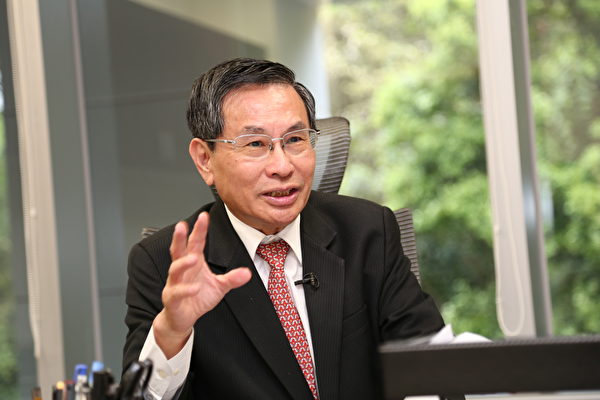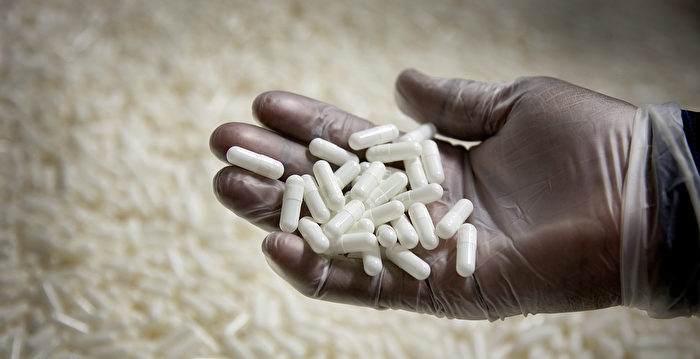[Epoch Times, September 17, 2022](The Epoch Times reporter Lin Cenxin interviewed and reported) US President Biden signed an executive order earlier to start the promotion of biotechnology and biomanufacturing plans. The executive order and details were not mentioned. The mention of China has drawn close attention from Beijing.
MedTrend’s official account published an article stating that if this initiative in the United States goes well, it will inevitably affect the revenue of China’s pharmaceutical outsourcing (CXO) industry. The article analyzes that Chinese listed pharmaceutical outsourcing companies include WuXi PharmaTech, Pharmaron, Tigermed, Asymchem, etc., overseas revenue accounts for more than 50%, and WuXi PharmaTech’s overseas revenue even exceeds 80%, of which a large Some are from the United States.
Affected by this news, the stock prices of many pharmaceutical companies listed in China and Hong Kong have plummeted in the past week. Among them, WuXi AppTec, Tigermed, and Pharmaron’s A shares closed at the daily limit, down 7.57%, and down 13.95% respectively on the 13th. , As of the 16th, the three biotech companies have fallen by 13.25%, 8.81%, and 12.27% in the past five days.
Biowarfare Suspicion and Supply Chain Disruption Crisis Involving National Security Level
The executive order came after a number of U.S. media, including Bloomberg, quoted White House sources as saying that while the U.S. has the world‘s strongest biotech industry, some high-tech production has moved abroad. U.S. national security and intelligence officials are particularly concerned about America’s reliance on China’s advanced biomanufacturing infrastructure.
Tu Xingzhe, Ph.D. from the School of Public Health at the University of California, Los Angeles, and chairman of the Taiwan Consortium Biotechnology Development Center, told The Epoch Times on September 15 that the reason why the United States has elevated biomanufacturing to the national security level, just like chip manufacturing, is indeed related to China has a relationship.
He said that mainly after the outbreak of COVID-19, whether the CCP developed biological warfare agents through functional research, or laboratory leakage, has been questioned by the outside world so far. In addition, after the outbreak of the epidemic, the United States discovered the crisis of supply chain disconnection, the most obvious one being automotive chips.
“In the past two and a half years after the epidemic, the CCP is still closing down the city on a large scale. The outside world is worried that once the supply chain of raw materials is broken, causing the risk of shortage of antibiotics and hemostatic drugs, the United States regards this as part of national security, so there is a national biotechnology The executive order related to the biomanufacturing program is, to put it bluntly, the follow-up to the Chip Act.” Tu Xingzhe said.
Peter Brookes, a senior fellow at the Heritage Foundation and former deputy assistant secretary of defense, wrote in a recent article, “There is good reason to worry that China’s work in biotechnology could be used against us and our country in a crisis or conflict. our allies.”
A State Department report to Congress in April noted that Beijing continued to engage in dual-use (military/civilian) activities, raising concerns about its compliance with Article 1 of the Biological Weapons Convention.
U.S. invests $2 billion to advance biotech
On the 12th, Biden formally signed an executive order to promote innovation in biotechnology and biomanufacturing to achieve a sustainable, safe and reliable U.S. bioeconomy. The White House held a biotechnology and biomanufacturing summit on the 14th, chaired by National Security Adviser Sullivan. During the meeting, it was announced that the U.S. government would invest more than $2 billion in the implementation of the executive order.
According to a fact sheet posted on the White House website, the U.S. government is investing in multiple sectors, including $40 million from the Department of Health and Human Services to strengthen active pharmaceutical ingredients (APIs), antibiotics and key raw materials needed to respond to the outbreak. Bio-manufacturing; the Department of Defense will invest $1 billion over 5 years in the construction of infrastructure for the bio-industry.
Tu Xingzhe believes that this executive order lists a number of key points, although it does not explicitly say that it is to get rid of its dependence on China, “But for China, will this executive order affect its research and development and manufacturing in biotechnology? They are anxious.”
He said that it is worth noting that the executive order has repeatedly mentioned words such as “fairness, ethics, safety and security”, “morality and responsibility”, and “American principles and values”. Although the content does not directly name the CCP, the intention is very obvious. , “Why do you want to return to the United States to make, that is, China (the CCP) does not conform to these principles or American values, and the meaning is implied in the executive order.”
The United States gets rid of its dependence on China and seeks allies with similar values
After the introduction of this initiative, it has impacted the pharmaceutical outsourcing industry in mainland China. Wang Hongguang, executive director of Peking University’s China Strategic Research Center, said in an interview with mainland media that the new US decree is a “wind vane”, which indicates that the US’s technological restrictions on China have expanded from chips and energy to the biological field. If the new decree does not achieve the expected effect of the US, it is possible to continue to seek precise strikes against China just like in the chip field.
In May this year, the National Development and Reform Commission of the Communist Party of China issued the “14th Five-Year Plan for Bioeconomic Development”, which is China’s first five-year plan for bioeconomics.
South Korean companies are also worried about being affected. Korean media reported that the move may force South Korea to commission development and manufacturing services (CDMO) companies to establish production bases in the United States, and if the U.S. Food and Drug Administration (FDA) proposes guidelines to reduce the use of raw materials from mainland China, South Korean companies may also have to disperse raw materials. source of supply.
In this regard, Tu Xingzhe holds a different view. He said that if you look closely at the last key point of the executive order, it emphasizes international cooperation, and points out that in line with the principles and values of the United States, international cooperation and development will be promoted, and a prosperous and secure global bio-economy will be established with partners and allies. “Some people see it and think it’s miserable. If they all return to the United States to manufacture, then Taiwan and South Korea will have no chance. No, this is just the opposite. Whoever meets the morality, the principle of fairness, and the American values will have great opportunities. Increase.”

Under this guidance, it may not be an opportunity for Taiwanese biotech companies. Tu Xingzhe said that under the COVID-19 epidemic, Taiwan’s epidemic prevention energy and economic resilience, coupled with the advantages of semiconductor and ICT industries, should have the opportunity to seek development under the raging US-China biotech war.
Responsible editor: Lin Congwen
